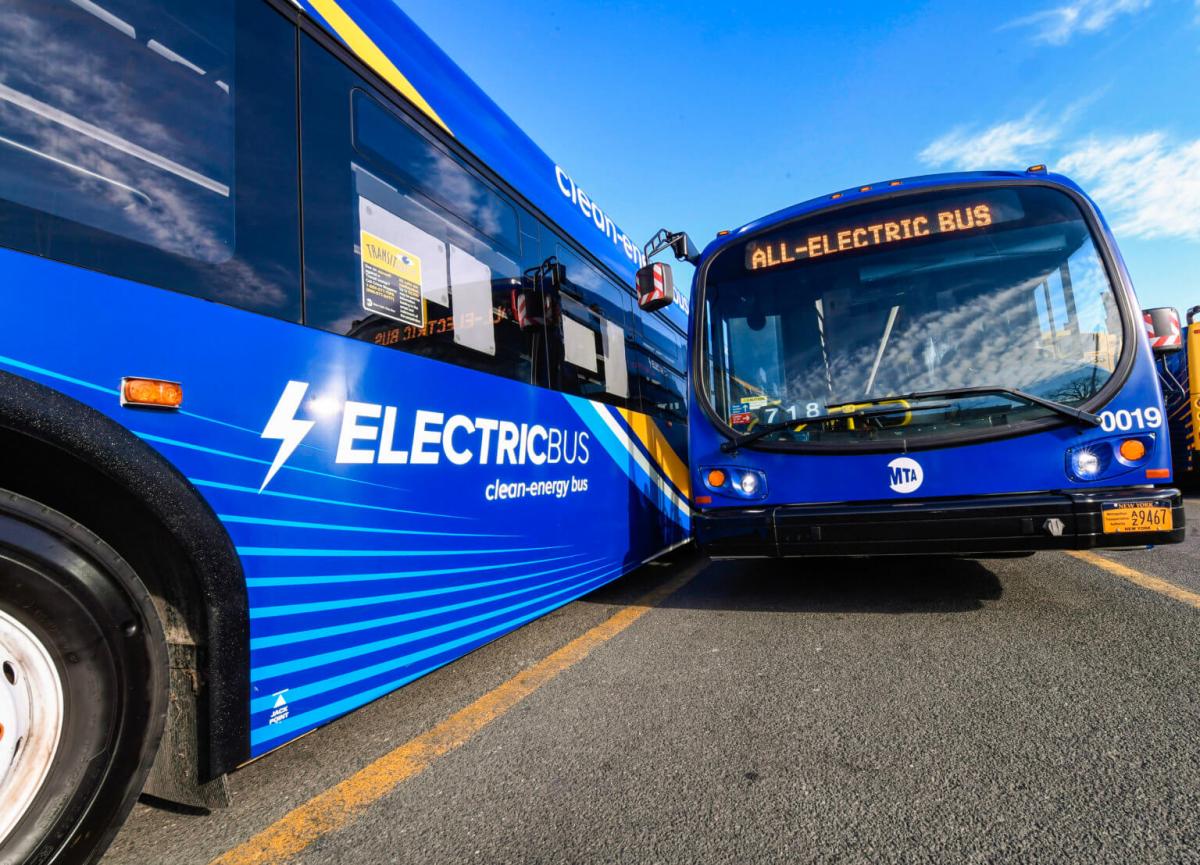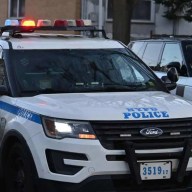The MTA has chosen a developer to construct the first electric bus charging station in the Bronx on unused land adjacent to the Gun Hill Road Bus Depot, though it’s unclear what else the site will be used for.
The 1910 Bartow Ave. site sits between East Gun Hill Road and Edson Avenue, right beside the New England Thruway.
The agency put out a Request for Proposals (RFP) in 2022 to develop 550,000 square feet of the MTA-owned land and the agency announced Sunday that Madison Capital, a real estate investment and operating company, has been approved by the MTA Board to build the core and shell for the bus charging facility.
According to the MTA, Madison Capital will fund the construction of the MTA facility and pay “substantial” ground rent to the agency, which is when a leasee owns the building but not the property. The lease lasts 99 years, according to MTA spokesperson Eugene Resnick.
“We are honored to be chosen by the MTA for this transformative project,” said Jonathan Nachmani, managing director at Madison Capital. “Our team is excited to work alongside the MTA and local stakeholders to make a lasting positive impact, setting a model for future urban renewal initiatives across New York City.”
According to the MTA, Madison Capital will pay rent with revenue the company generates from the development. When asked where the revenue will come from, MTA spokesperson Meghan Keegan said the company will develop the site into an industrial facility “with uses complementary to MTA’s electric bus charging facility.”
It’s unclear what those uses are exactly, however.
When asked for elaboration on how Madison will use the site, Resnick similarly said the facility will be focused on “sustainable urban development with uses that will complement MTA’s electric vehicle charging facility.”
The project will help the agency transition to an electric bus fleet in hopes of creating a zero-emission fleet by 2040.
The MTA ran a pilot from 2017-2021 by leasing 10 electric buses, and in 2019 the agency purchased 15. This year, the MTA plans to put 60 electric buses into service, with supporting infrastructure at 5 depots. From 2025-2026, the agency plans to enter another 470 electric buses into service, with infrastructure at 11 depots.
The MTA also plans to expand a depot-based workforce training program for zero-emissions.
The site is part of Community District 12, but George Torres, the district manager for the local Community Board 12, told the Bronx Times that the board was not approached by the MTA about the plan.
“It is disappointing,” he said. “I do not know if the Community Board would have been supportive of an electric bus depot but it would have been nice if we were brought into the discussion.”
He pointed to a mixed-use project that had been proposed for the site that never came to fruition.
The project — a proposed open air plaza called Baychester Square — would have brought shopping, dining, recreation and 180 units of senior affordable housing to the property. CB12 supported the proposal, as did former Borough President Ruben Diaz Jr. — as long as it would not be developed as an outlet mall.
But the plan was quashed by former Mayor Bill de Blasio in the summer of 2017 after former Councilmember Andy King, who represented the area at the time, stood adamantly against the proposal. King argued that the district did not need more low-paying jobs and instead should build a school or corporate office with higher paying positions.
Prestige Properties, the management company for the nearby Bay Plaza Mall, saw the proposed development as a threat to its business and jobs.
The existing bus depot on the site was built smaller than initially planned after the MTA acquired the condemned property in the 1980s, due to budget constraints. The rest of the site was leased as a golf driving range and to Astor Little League, a nonprofit that manages, operates and maintains Little League baseball fields. Astor Little League remains on the site, which the new development will not interfere with, per the MTA.
In 2012, the New York City Economic Development Corporation put out a RFP for the site, at which point after the driving range closed. But a contract to sell the property to Grid Properties and Gotham Organization — winners of the RFP — for the proposed Baychester Square expired in 2019 after the plan fell through.
As the future of the unused space remained uncertain, the MTA developed a plan to convert its bus fleet.
“Developing a new electric bus charging facility at Gun Hill Road Depot is another major step in the MTA’s ambitious effort to transition to a zero-emission bus fleet by 2040 – with benefits not only for the Bronx but extending to the entire metropolitan area,” said MTA Chair and CEO Janno Lieber. “Mass transit is the antidote to climate change, and we’re making this site one of North America’s greenest industrial facilities.”
Councilmember Kevin Riley, a Baychester Democrat, did not respond to a request for comment.
Reach Aliya Schneider at aschneider@schnepsmedia.com or (718) 260-4597. For more coverage, follow us on Twitter, Facebook and Instagram @bronxtimes
























